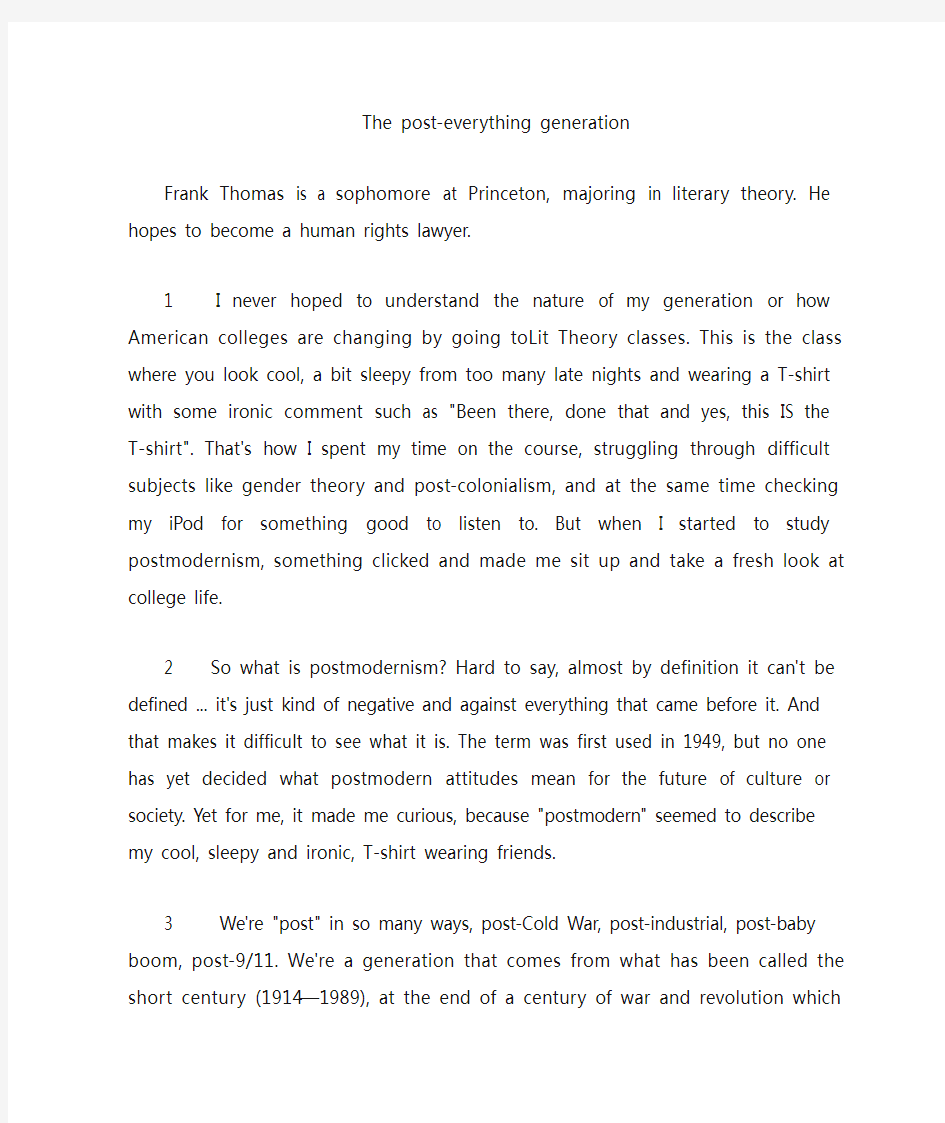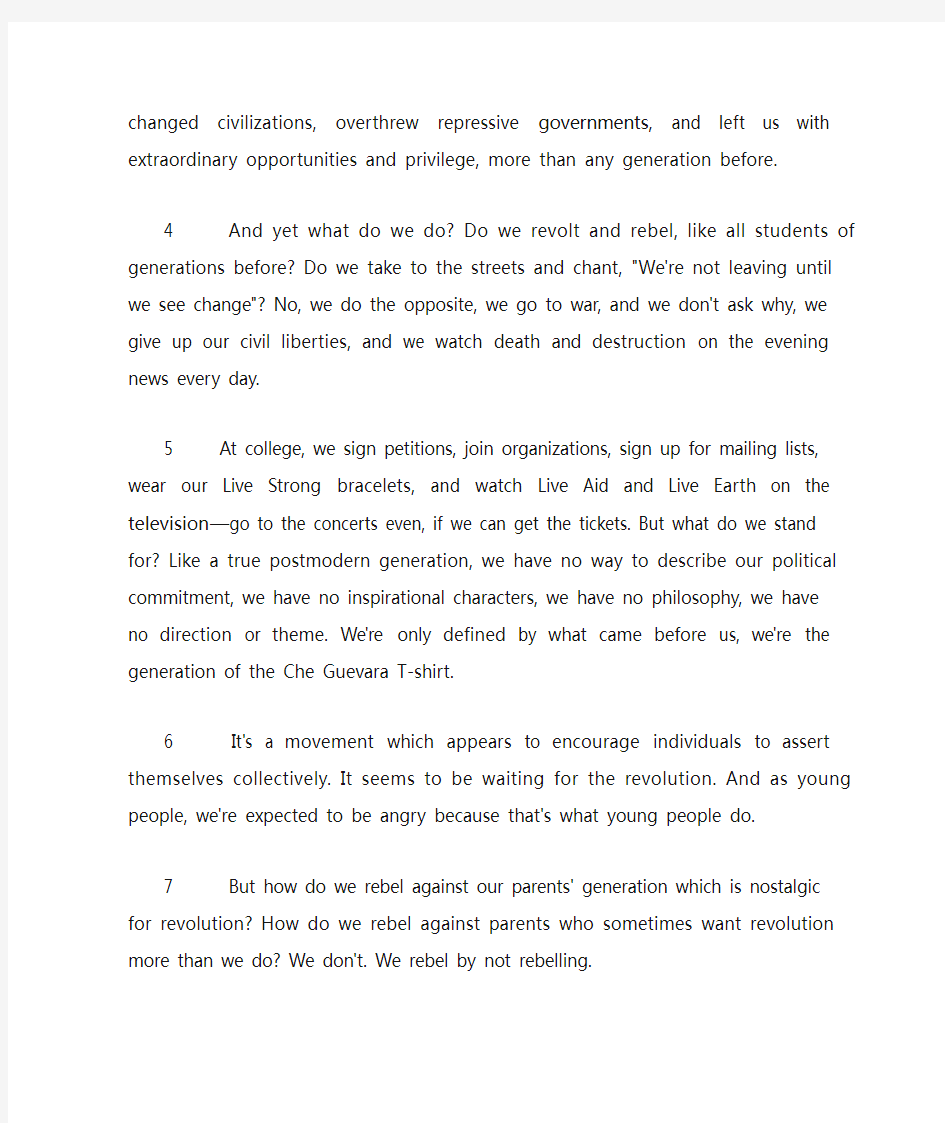The_post-everything_generation


The post-everything generation
Frank Thomas is a sophomore at Princeton, majoring in literary theory. He hopes to become a human rights lawyer.
1 I never hoped to understand the nature of my generation or how American colleges are changing by going to Lit Theory classes. This is the class where you look cool, a bit sleepy from too many late nights and wearing a T-shirt with some ironic comment such as "Been there, done that and yes, this IS the T-shirt". That's how I spent my time on the course, struggling through difficult subjects like gender theory and post-colonialism, and at the same time checking my iPod for something good to listen to. But when I started to study postmodernism, something clicked and made me sit up and take a fresh look at college life.
2So what is postmodernism? Hard to say, almost by definition it can't be defined ... it's just kind of negative and against everything that came before it. And that makes it difficult to see what it is. The term was first used in 1949, but no one has yet decided what postmodern attitudes mean for the future of culture or society. Yet for me, it made me curious, because "postmodern" seemed to describe my cool, sleepy and ironic, T-shirt wearing friends.
3We're "post" in so many ways, post-Cold War, post-industrial, post-baby boom, post-9/11. We're a generation that comes from what has been called the short century (1914—1989), at the end of a century of war and revolution which changed civilizations, overthrew repressive governments, and left us with extraordinary opportunities and privilege, more than any generation before.
4And yet what do we do? Do we revolt and rebel, like all students of generations before? Do we take to the streets and chant, "We're not leaving until we see change"? No, we do the opposite, we go to war, and we don't ask why, we give up our civil liberties, and we watch death and destruction on the evening news every day. 5At college, we sign petitions, join organizations, sign up for mailing lists, wear our Live Strong bracelets, and watch Live Aid and Live Earth on the television—go to
the concerts even, if we can get the tickets. But what do we stand for? Like a true postmodern generation, we have no way to describe our political commitment, we have no inspirational characters, we have no philosophy, we have no direction or theme. We're only defined by what came before us, we're the generation of the Che Guevara T-shirt.
6 It's a movement which appears to encourage individuals to assert themselves collectively. It seems to be waiting for the revolution. And as young people, we're expected to be angry because that's what young people do.
7But how do we rebel against our parents' generation which is nostalgic for revolution? How do we rebel against parents who sometimes want revolution more than we do? We don't. We rebel by not rebelling.
8The real energy is not on the campus, it's on the Internet. It provides us with a developing opportunity to communicate ideas and frustrations. We don't do demonstrations any more, we go to chat rooms, instead of going onto the streets.
9The American college as we used to know it is coming to an end. To my generation, radicalism is associated with al-Qaeda, not the Weathermen. "Campus takeover" sounds less like Berkeley 1968, more like Virginia Tech 2007. The resonance of the words belongs to another era and doesn't reflect the realities of today. 10But the technological revolution is just as real and just as profound as the revolution of the 1960s—it's just not as obvious. It's work in progress, but it's there. Perhaps when our parents stop pointing out everything they were and everything we're not, maybe they'll see that the post-everything generation is speaking a language which makes sense. We're writing the revolution, and we're using our own words to do so.
